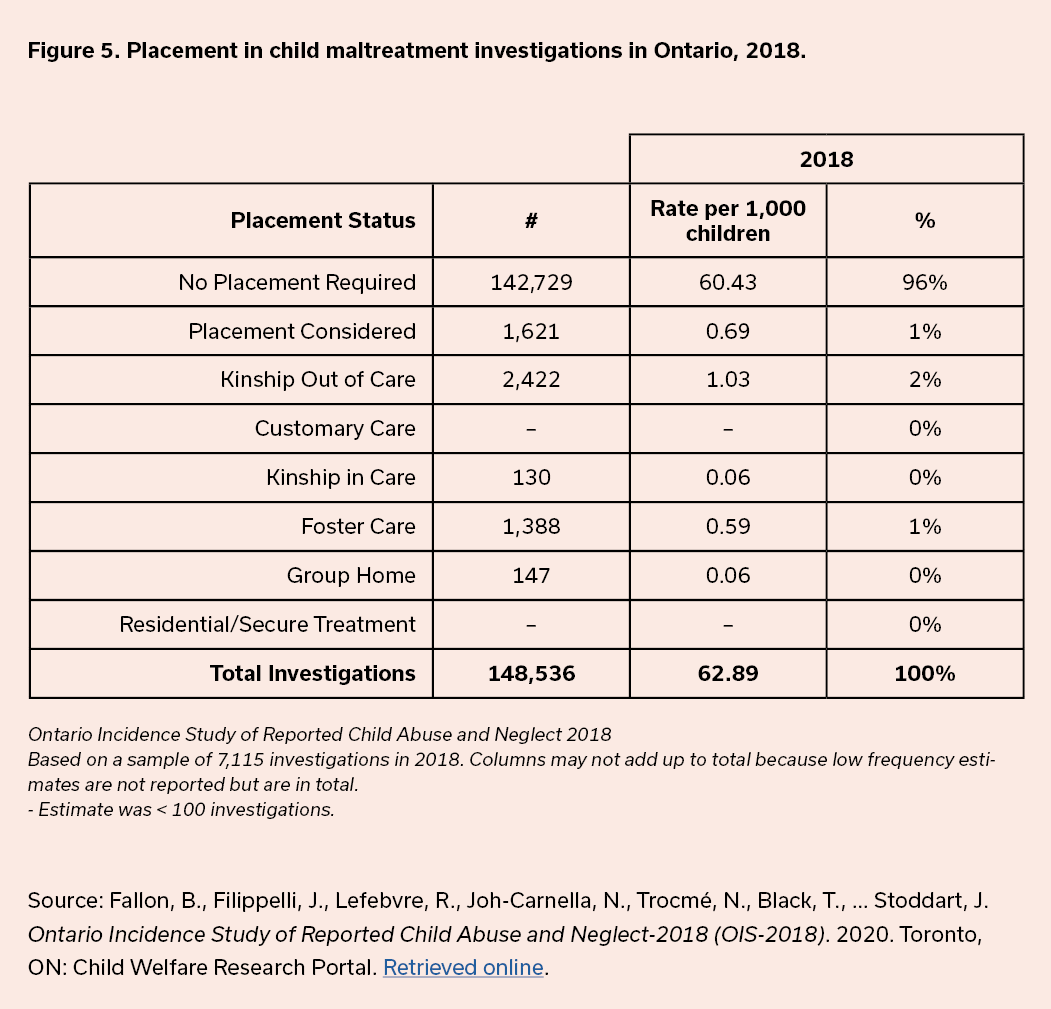
There are too many examples of children/youth having to enter the child welfare system who present with complex needs, with no child protection issues present in the family other than the lack of appropriate mental health services which makes the home situation untenable.
– Child Welfare Staff
 The COVID-19 pandemic has exacerbated many of the systemic challenges and social inequities that have long strained local communities and the service providers working within them, including child welfare. We know that most families that come into contact with the child welfare system are not cases of extreme abuse or neglect. Instead, most caregivers are struggling to meet the basic needs of their family. As the pandemic wears on, Ontarians continue to face challenges — like financial hardship, lack of social supports, and increased mental health concerns — that put them at risk of crises.
The COVID-19 pandemic has exacerbated many of the systemic challenges and social inequities that have long strained local communities and the service providers working within them, including child welfare. We know that most families that come into contact with the child welfare system are not cases of extreme abuse or neglect. Instead, most caregivers are struggling to meet the basic needs of their family. As the pandemic wears on, Ontarians continue to face challenges — like financial hardship, lack of social supports, and increased mental health concerns — that put them at risk of crises.
Families are often connected to the child welfare system because of a lack of community supports, such as adult and children mental health services, intimate partner violence services, addiction help, residential and treatment facilities, and developmental services. Parents and caregivers need better, accessible, local supports to ensure the safety and well-being of themselves and their children. In particular, there is a need for concrete strategies and robust resources to address and support the complex special and mental health needs of children and youth. Government support for barrier-free, better cross-system collaboration, stronger community partnerships, and policies that allow for creative service delivery models should also be a priority. The child welfare funding formula, as well as child welfare assessment tools, must reflect the shift toward admission prevention services.
Finally, parents and caregivers need fundamental supports such as access to financial stability, employment opportunities, accessible childcare, safe and affordable housing, and food security so they can provide the best and safest environment for their children. And when children and youth cannot remain with their primary caregivers due to safety concerns, kinship families need to have the proper resources to care for the children and youth in their homes. Adequate, consistent funding and supports for kinship services and family-based care is essential. Economic status should not be a caregiving barrier.
OACAS calls on all parties to work across government ministries to prioritize admission prevention, early intervention, family-based care, and community supports to ensure that Ontario children, youth, and families can access the full scope of social services they need, where and when they need them.
To learn more about the child welfare sector’s other election priorities, see:
